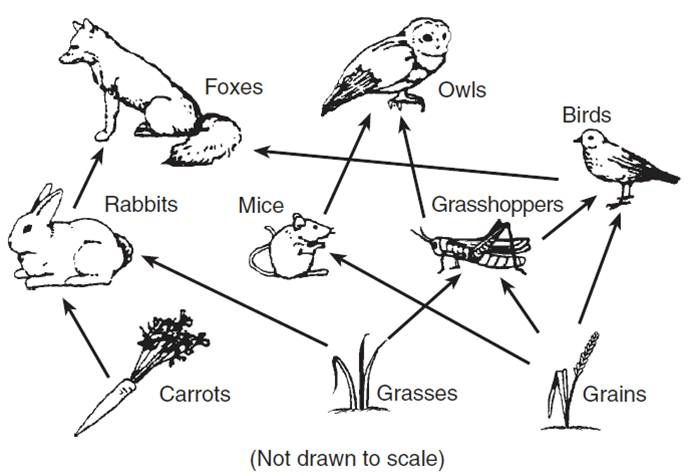What is the name of an organism that makes its own food.
Autotroph
How much ATP is created from cellular respiration?
36-38
How much ATP is created from fermentation?
2 ATP
What is the ultimate energy source for most ecosystems?
The sun
Relate aerobic and anaerobic to cellular respiration and fermentation
Cellular respiration is aerobic meaning it requires oxygen.
Fermentation is anaerobic meaning it does not require oxygen (occurs when it is not readily available)
Where does the light dependent reactions and calvin cycle occur?
light-dependent: thylakoids
calvin cycle: stroma
Define cellular respiration.
A process that changes glucose (sugar) into ATP (energy) the cell can use to perform its functions.
Name 1 way humans use fermentation to their advantage.
We make food using fermentation. Bread, cheese, alcohol, yogurt, etc.
Where does 90% of the energy go between trophic levels on an energy pyramid?
It is mostly lost as heat energy (but some is undigested food)
What does products and reactants mean?
products- what is made in a chemical reaction (what you end with)
reactants - what goes into a chemical reaction (what you start with)
During photosynthesis, different gasses move in and out of plant cells.
Carbon dioxide moves in and oxygen moves out
Where does each step of cellular respiration occur?
1. Glycolysis
2. Krebs Cycle
3. Electron Transport Chain
1. Glycolysis - cytoplasm
2. Krebs Cycle - Matrix of mitochondria
3. Electron Transport Chain - The membrane of the mitochondria
What type of fermentation do animals do? What about yeast?
Animals: Lactic Acid Fermentation
Yeast: Alcoholic Fermentation
A tree has 23,500 kcal of energy. A giraffe comes up to eat the plant. A lion then eats the giraffe. How many kcal of energy does the lion consume?
235 kcal
Where does photosynthesis, cellular respiration, and glycolysis primarily occur?
photosynthesis - chloroplast
cellular respiration - mitochondria
fermentation - cytoplasm
What is light absorbed by and where does it happen?
Chlorophyll absorbs the light and it happens in the thylakoids of the chloroplast.
Compare the efficiency of cellular respiration to photosynthesis
Cellular respiration is more efficient than photosynthesis. You get 36-38 ATP compared to the 2 ATP you get from fermentation
When does your body switch from cellular respiration to fermentation?
When there isn't enough oxygen readily available in your cells. This happens during exercises like sprinting and weight lifting.
What level on a trophic pyramid would the bird be?
Secondary Consumer
What are the byproducts of cellular respiration and photosynthesis?
cellular respiration - carbon dioxide
photosynthesis - oxygen
What is the equation for photosynthesis?
Light + water + carbon dioxide -> oxygen + glucose
What are the 3 steps of cellular respiration? What happens at each step?
1. Glycolysis (makes 2 ATP)
- glucose broken down into pyruvate
2. Krebs Cycle (makes 2 ATP)
-break down pyruvate further to get electrons (NADH & FADH2), release CO2, get 2 ATP
3. Electron Transport Chain (makes 32-34 ATP)
- Electrons move through the ETC . Protons move from high to low concentration through ATP synthase
The yeast are consuming the sugar (glucose) in the cereal and releasing carbon dioxide gas. This process is called fermentation.
producers - plants
primary consumers - herbivores
secondary consumers - omnivores or carnivores
tertiary consumers - top of the food chain
Label each of the products and reactants of the equation AND which is photosynthesis and which is cellular respiration.
C6H12O6 + 6O2 --> 6CO2 + 6H2O + ATP
6CO2 + 6H2O +light → C6H12O6 + 6O2
Cellular Respiration
C6H12O6 + 6O2 -> 6CO2 + 6H2O + ATP
Glucose+ oxygen ->carbon dioxide + water +energy
Photosynthesis
light + 6CO2 + 6H2O → C6H12O6 + 6O2
light+Carbon dioxide+water -> glucose+oxygen